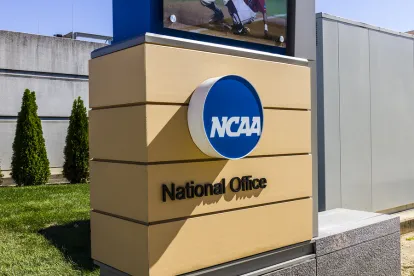The NCAA must defend claims that they are a joint employer from student-athletes seeking to be paid for the time they spend participating in collegiate athletic activities. Despite U.S. District Court Judge John Padova’s dismissal with prejudice of wage and hour claims filed by the student-athletes against more than 20 schools that the plaintiffs never attended, he rejected that same argument when raised by the NCAA. Instead, he allowed the Fair Labor Standards Act (FLSA) claim seeking financial remuneration for their participation in Division I athletic activity to continue against the NCAA. (Ralph “Trey” Johnson et al. v. NCAA).
Judge Padova concluded the student-athletes’ allegation that the NCAA is their joint employer, along with the defendant university schools that the student-athletes attended, is possible.
Recognizing that two different entities can be joint employers of the same person if they both have significant control over the employee, Judge Padova utilized a Third Circuit test involving four factors established In Re Enterprise Rent-A-Car Wage & Hour Employment Practices Litigation. The four factors to consider if a joint employer relationship exists as outlined in Enterprise include, if an alleged employer can hire and fire the relevant employees; if it has the authority to promulgate work rules and assignments and to set the employees’ conditions of employment; is involved in day-to-day employee supervision and discipline; and has actual control of employee records, including payroll.
Approximately one month ago, Judge Padova allowed the six student-athlete plaintiffs’ claims against their institutions (Villanova, Fordham, Sacred Heart, Cornell and Lafayette) to proceed because the schools had failed to provide sufficient proof to establish that the student-athletes were not employees. Similarly, Judge Padova rejected the NCAA’s defense and effort to dismiss the FLSA action concluding that a possible joint employer relationship exists because the “NCAA does more than just impose rules…it also investigates violations of those rules and imposes penalties, including the firing of student athletes, for those violations”.
Judge Padova concluded,
“the complaint plausibly alleges that the NCAA exercises significant control over the hiring and firing of student athletes, including plaintiffs, such that the complaint satisfies the first factor of the Enterprise test with respect to the NCAA.”




 />i
/>i
